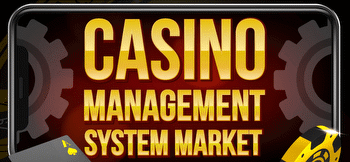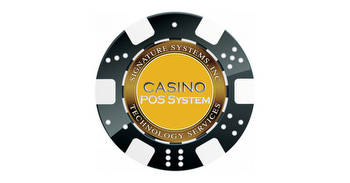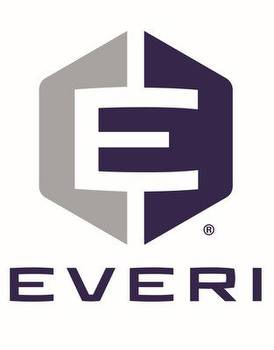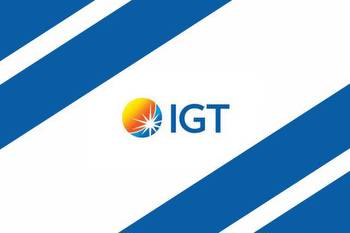Casino Management Systems Market Will Hit USD ~46 Bn by 2033
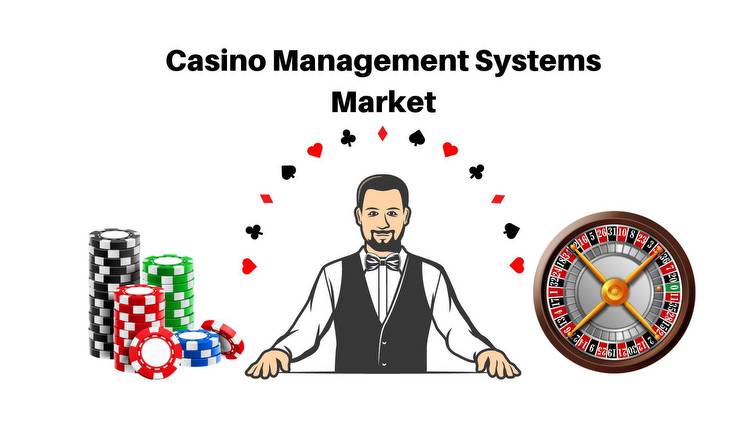
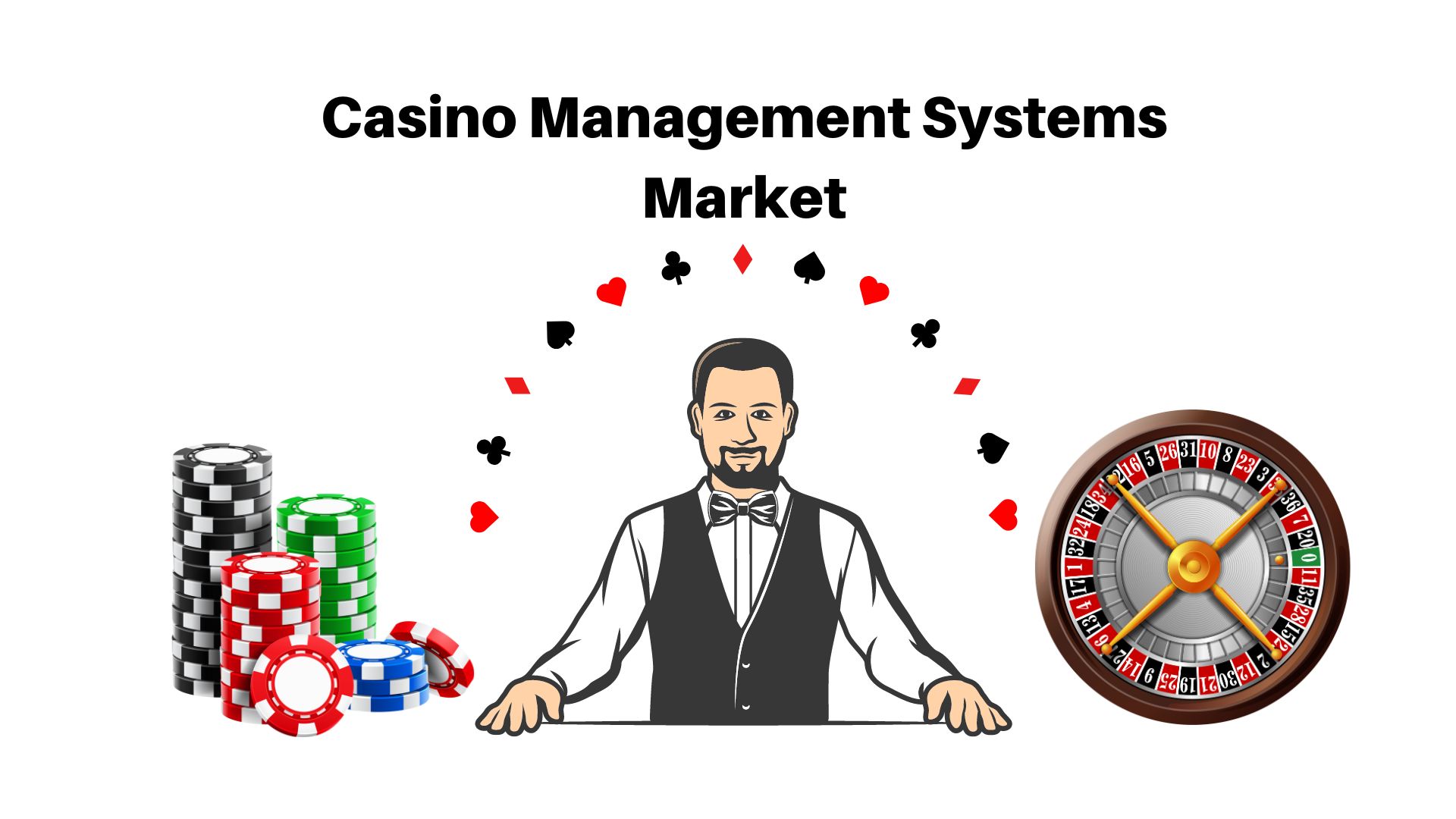
Market Overview
Casino Management System Market is a software solution designed to assist casino operators in overseeing their gaming operations. CMS offers various tools and functionalities that enable managers to monitor and optimize their casino’s performance, track player activity, manage financial transactions, and abide by regulations.
The Casino Management Systems Market size is expected to reach USD 46.09 Bn by 2033, up from its current value of USD 8.67 Bn in 2022, growing at an annual compound growth rate (CAGR) of 16.4% from 2023-2033.
Key Features
- Accounting and Financial Management: CMS offers a centralized accounting system to oversee all financial transactions, such as cash handling, revenue tracking, and taxation. Casino managers can utilize this to generate financial reports and assess their casino’s performance financially.
- Player Tracking: CMS allows casino managers to monitor player activity, such as gaming preferences, spending patterns and loyalty status. This enables operators to tailor their marketing campaigns and offer tailored promotions to individual customers.
- Game Management: CMS allows casino operators to manage their gaming machines and tables, including setting limits, monitoring game performance, and identifying potential issues.
- Security and Surveillance: CMS offers tools for security and surveillance, such as monitoring cameras, tracking employee activities, and detecting fraudulent behavior.
- Compliance Management: CMS guarantees adherence to relevant regulations and laws, such as anti-money laundering rules, responsible gaming guidelines, and data privacy laws.
- Marketing and Customer Relationship Management: CMS allows casino managers to craft marketing campaigns and maintain customer relations, including tracking customer feedback, analyzing data, and creating loyalty programs.
Key Takeaways
- CMS (Container Management System) is a software solution designed to assist casino operators manage their gaming operations, such as financial transactions, player tracking, game management, security & surveillance operations, compliance management as well as marketing activities.
- A CMS is a centralized accounting system that manages all financial transactions, such as cash handling, revenue tracking and taxation. It enables casino managers to generate financial reports and assess their casino’s financial performance.
- Casino managers can utilize Content Management Systems (CMSs) to monitor player activity, such as gaming preferences, spending habits and loyalty status. This enables operators to personalize their marketing campaigns and offer tailored promotions for individual customers.
- Casino operators can utilize a CMS to manage their gaming machines and tables, setting limits, monitoring game performance, and identifying any potential issues.
- Security and surveillance are integral features of a CMS, offering tools for monitoring cameras, tracking employee activity and spotting fraudulent behavior.
- Compliance management is a vital aspect of CMS, guaranteeing compliance with regulations and laws such as anti-money laundering rules, responsible gaming guidelines, and data privacy laws.
- Marketing and customer relationship management is another essential feature of a CMS, enabling casino managers to craft marketing campaigns and nurture customer relationships, including tracking customer feedback, analyzing data, and creating loyalty programs.
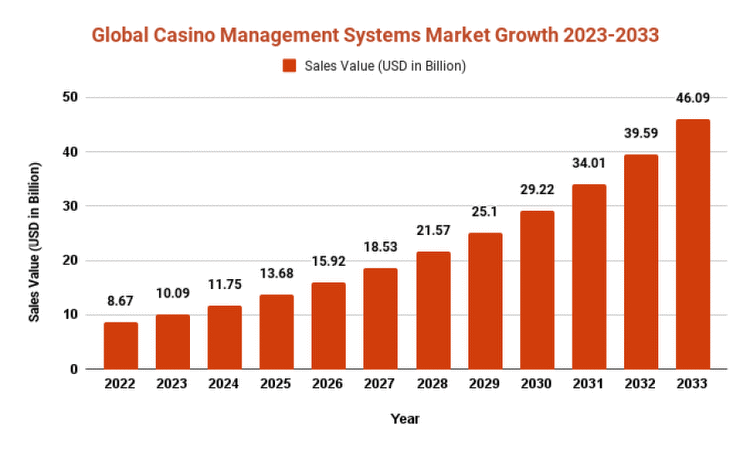
Regional Snapshot
- North America: North America is the leading market for CMS, boasting a large number of casinos in both the United States and Canada. There is an increased need for compliance management, financial reporting, and player tracking in this region due to its growing casino presence.
- Europe: Europe is a major market for CMS, boasting many casinos in countries like the UK, France, Germany and Spain. Here, demand for CMS is driven by an abundance of marketing and customer relationship management software as well as compliance management and game management needs.
- Asia Pacific: The Asia Pacific region is the fastest-growing market for CMS, with many casinos located in countries like Macau, Singapore and the Philippines. There is an increased need for player tracking, financial reporting and game management within this region which has driven demand for CMS systems.
- Latin America: The Latin American market for CMS is relatively small but growing, with a significant number of casinos in countries like Mexico, Brazil, and Argentina. The demand for CMS services in this region is driven by the need for compliance management, financial reporting, and player tracking.
- Middle East and Africa: While there are fewer casinos in this region, demand for CMS continues to increase as more facilities open their doors. This region’s needs stem from financial reporting, compliance management, and game management requirements.
Drivers
- Compliance Requirements: Casinos operate in a highly regulated environment, and complying with regulations is paramount. CMS helps casinos manage these requirements by tracking financial transactions, monitoring employee activity and assuring all gaming activities adhere to legal frameworks.
- Player Experience: The gaming industry is highly competitive, so casinos must provide a superior player experience to attract and retain customers. CMS helps casinos offer personalized services, loyalty programs, and targeted promotions that improve player satisfaction while increasing revenue.
- Operational Efficiency: Efficient operations are paramount to the profitability of a casino. CMS helps manage financial transactions, track inventory, monitor game performance and optimize staffing levels for improved efficiency and lower costs.
- Data Analytics: CMS gives casino managers access to a vast amount of data, such as financial, operational and customer details. This can be mined for insights that allow managers to make informed decisions about marketing strategy, operations and other strategic initiatives.
- Security: The gaming industry is particularly vulnerable to fraud, theft and other security risks. CMS provides a comprehensive security framework with surveillance, access control and employee monitoring in order to reduce the likelihood of breaches in security protocols.
- Mobile Technology: The proliferation of mobile technology has revolutionized the gaming industry, and CMS can be integrated with mobile platforms to give players access to games and promotions on their handheld devices.
Restraints
- CMS can be costly to implement and maintain, especially for smaller casinos with limited budgets. The price tag includes hardware, software, installation, training, as well as ongoing support services. CMS must integrate with multiple systems and platforms like gaming machines, accounting software, marketing platforms and surveillance cameras – integration that may take some effort or time if the systems are outdated. Further complicating matters further is that CMS requires specialized skillsets and knowledge to properly administer; casino managers may need to hire staff or outsource management of the system which adds further onto costs.
- Adopting CMS may necessitate changes to existing processes and procedures, which may encounter resistance from staff and management. Delays or limits in implementation can cause the adoption of CMS or limit its effectiveness. As a technology-driven solution, technical issues like system failures, software bugs, security breaches can occur which cause disruptions in operations as well as loss of revenue. The gaming industry is highly regulated; compliance with regulations is vital; changes in regulations or legal challenges could significantly hinder CMS performance requiring costly modifications or upgrades instead.
Opportunities
- Expansion of the gaming industry: The gaming industry is growing globally, with new casinos opening their doors in emerging markets. CMS can assist these casinos manage operations, adhere to regulations, and provide a high-quality player experience.
- Technology Advancements: Technology is rapidly advancing, and new innovations such as artificial intelligence, machine learning, and blockchain can enhance CMS’ capabilities. These innovations improve operational efficiency, data analytics, security measures, and player experiences alike.
- Mobile Gaming: The growth of mobile technology has revolutionized the gaming industry. CMS can be integrated with mobile platforms to give players access to games and promotions on their smartphones, increasing player engagement and driving revenue growth.
- Personalized Services: Casinos can leverage CMS to offer personalized services to players, such as loyalty programs, targeted promotions and tailored gaming experiences. Personalized touches improve player satisfaction while driving loyalty and revenue growth for casinos.
- Data Analytics: CMS gives casino managers access to vast amounts of financial, operational and customer data. This information can be mined for insights that allow managers to make informed decisions about marketing strategy, operations and other strategic initiatives. Data analytics also has the potential to boost revenue growth and enhance operational efficiency.
- Compliance Management: The gaming industry is highly regulated, and CMS can assist casinos in adhering to regulations and avoiding penalties. Adhering to regulations not only improves the reputation of the casino but also encourages revenue growth.
Challenges
- Integration: One of the major obstacles faced by CMS is integration with existing casino systems, such as player tracking, accounting and security measures. Linking these programs together can be complex and time-consuming; it necessitates careful planning and execution.
- Security: Security is a top priority for CMS, as casinos are highly vulnerable to fraud and theft. Therefore, CMS must take steps to prevent unauthorized access and data breaches while also guaranteeing the integrity of gaming operations and financial transactions.
- Scalability: Casinos are dynamic environments, constantly shifting with new games, promotions and regulations introduced regularly. CMS must be able to adjust according to these changes while still providing essential functionality for efficient management of operations.
- Data Management: CMS generate large amounts of data, such as player and gaming information, financial details, and operational details. Managing and analyzing this vast amount of information can be a formidable task that necessitates the use of sophisticated analytical and reporting tools.
- User Experience: The user experience is key for CMS success, as casino staff must be able to use it efficiently and productively. Therefore, CMS must be designed with an appealing user interface and intuitive workflows, plus training and support should be provided so staff are equipped with all necessary abilities for effective usage of the system.
Market Segmentation
Application
- cruise
- casino
product
- security and surveillance
- analytical software
- and others
Key Players
- International Game Technology
- Belly Technologies
- Konami
- HCL Technologies
- Advansys
- Honeywell
- Intercard Inc.
- Casinfo Systems
- Info-Connect A/S
- Dallmeier
- Agilysys
- Ensico Gaming DOO
- Bluberi Gaming Technologies
- Avigilon
- Hconn
- Tangam Systems
- Lansa
- Wavestore
- Milestone Systems
- Micros Systems
Report Scope
Growing Demand Casino Management Systems Market => Request for Customization
Recent Developments
- Cloud-Based CMS: Cloud-based CMS has seen a meteoric rise in popularity over the last few years, offering casinos access to their system remotely and saving them the expense of costly hardware and IT infrastructure. Furthermore, cloud-based systems provide greater scalability and flexibility so businesses can rapidly scale up or down their operations with ease.
- Mobile Integration: As mobile technology continues to revolutionize gaming, CMS providers have prioritized mobile integration. By connecting their systems with mobile platforms, players can access games and promotions on their phones or tablets, increasing player engagement and driving revenue growth.
- AI and Machine Learning: AI and machine learning are being integrated into CMS to enhance operational efficiency, data analytics, and player experience. Casinos can utilize these technologies to optimize staff levels, predict player behavior, customize gaming experiences for enhanced revenue growth and player satisfaction.
- Blockchain Technology: Blockchain technology is being explored as a means to bolster CMS security and transparency. Blockchain offers an unalterable record of transactions, decreasing fraudulence risks and streamlining regulatory compliance requirements.
- Data Analytics: Data analytics is becoming an increasingly critical aspect of CMS, with providers offering advanced analytical tools that give casinos insights to make informed decisions about marketing, operations and other strategic initiatives. Data analytics can drive revenue growth and enhance operational efficiency.
Key Questions
1. What is a Casino Management System?
A Casino Management System (CMS) is an innovative software solution that assists casinos in managing their operations – including gaming, finance, marketing and security. CMS gives casino managers real-time data to make informed decisions and enhance player satisfaction. With CMS they gain control over every aspect of their operations from gaming to finance to marketing to security – giving them peace of mind when making critical decisions.
2. What are the Advantages of a CMS?
CMS systems offer numerous advantages, such as improved operational efficiency, increased revenue growth, enhanced player experience, better regulatory adherence and higher data security.
3. How Does a Casino Management Systems Work?
A CMS works by connecting to multiple systems and platforms, such as gaming machines, accounting programs, marketing platforms and surveillance ones. It collects data from these sources in real-time to give casino managers valuable insights. Moreover, CMS offers tools for managing finances, marketing initiatives and player loyalty programs.
4. What are the challenges of implementing a Casino Management Systems?
Implementing and maintaining a CMS presents several obstacles, such as high costs for implementation and upkeep, complexity of integration, resistance to change, technical issues, legal/regulatory concerns.
5. What are the recent advancements in Casino Management Systems?
Recently, cloud-based CMS, mobile integration, AI/machine learning, blockchain technology, and advanced data analytics tools have all been introduced.
6. How do CMS providers stand out in the market?
CMS providers stand out by offering customized solutions tailored to each casino’s individual requirements, providing outstanding customer support, and staying ahead of emerging technology and features.
7. What is the Future of CMS?
CMS’ future will likely involve greater integration with emerging technologies like artificial intelligence, machine learning, and blockchain. CMS will continue to adapt in order to meet the evolving demands of the gaming industry, giving casinos all of the tools necessary to be successful in an increasingly competitive casino management systems market.
Mr. Lawrence John
Marketresearch.Biz (Powered By Prudour Pvt. Ltd.)
Tel: +1 (347) 796-4335
Send Email:[email protected]
Prudour Private Limited
The team behind market.us, marketresearch.biz, market.biz and more. Our purpose is to keep our customers ahead of the game with regard to the markets. They may fluctuate up or down, but we will help you to stay ahead of the curve in these market fluctuations.Our consistent growth and ability to deliver in-depth analyses and market insight has engaged genuine market players. They have faith in us to offer the data and information they require to make balanced and decisive marketing decisions.

















